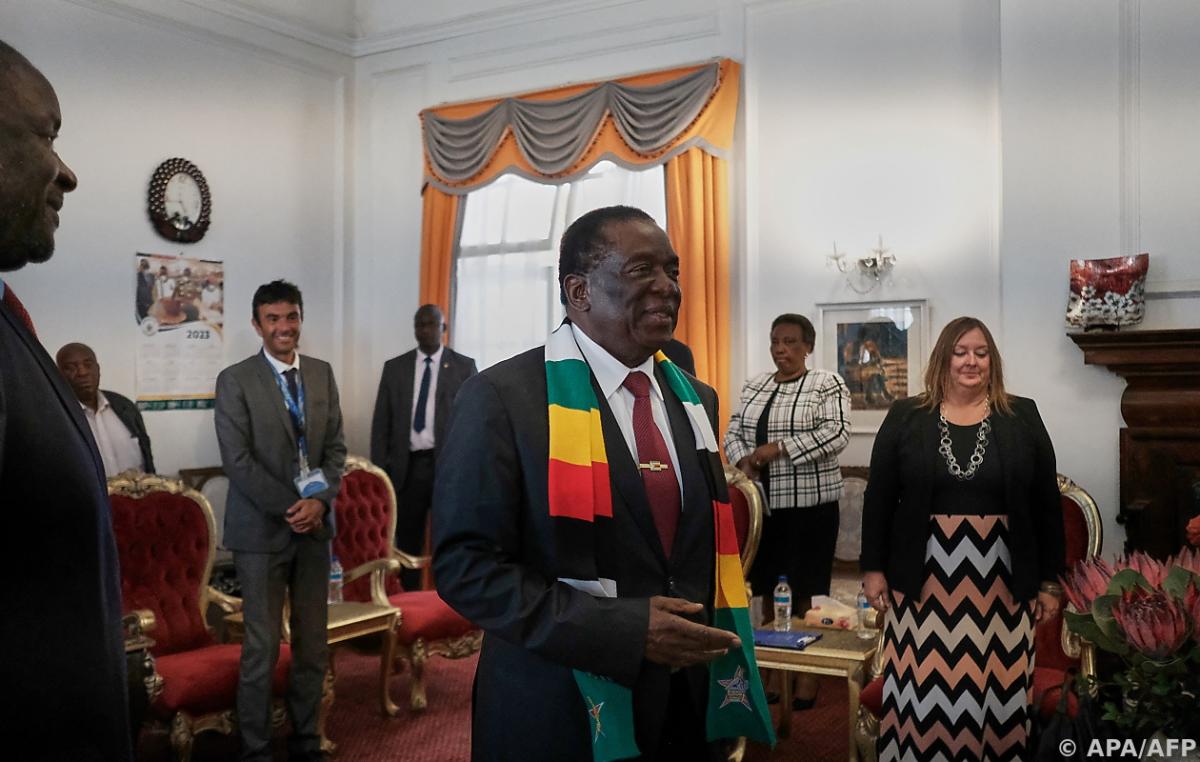In Zimbabwe, incumbent Emmerson Mnangagwa won presidential elections, which observers deemed insufficiently free and fair. The 80-year-old incumbent managed to secure nearly 53 percent of the votes cast, the opposition’s most promising candidate, Nelson Chamisa, receiving 44 percent of the vote, the electoral commission said on Saturday night in the capital Harare.
This guarantees Mnangagwa, who came to power in 2017 after a military coup, a second five-year term as president. According to preliminary results, the governing party, Zanu-PF, also managed to secure a solid majority in parliament.
However, Chamisa’s opposition party, CCC, questioned the result of Sunday night’s election. “We will not accept false results,” the party said on Plataforma X, formerly Twitter. In a preliminary communiqué distributed by the CCC on the network, the party spoke of “discrepancies” in the information provided by the central electoral commission. The person in charge of voting for the CCC candidate, Chamisa, refused to sign. We want to check the result. After Wednesday’s partly chaotic voting, the CCC had already accused the government of deliberately rigging the elections.
According to regional election observers, some of the presidential and parliamentary elections did not meet the southern African country’s legal requirements. In rural areas in particular, there has been widespread intimidation by groups close to the ruling Zanu-PF party, according to a report released on Friday by the Southern African Development Community (SADC) election observers. The organization also criticized delays at polling stations due to failure to deliver voting documents on time. There were also clear criticisms from EU election observers.
Even before the vote, human rights organizations criticized the intimidation of voters, the falsification of voter registrations and the fact that the election commission was made up of followers of the ruling Zanu-PF party.
Zimbabwe’s economy is in a deep crisis, with high unemployment and rampant inflation. Internationally, Zimbabwe is relatively isolated – many Western donor countries, for example, shy away from working with the Mnangagwa government because of democratic deficits.
In the country of around 16 million people, violence and allegations of manipulation have repeatedly occurred in the context of elections. Since Zimbabwe’s independence from British colonial power in 1980, longtime ruler Robert Mugabe has led the country in various capacities until 2017, most recently with an increasingly heavy hand. After the military overthrow of President Mugabe, former Vice President Mnangagwa came to power. Elections a year later, with Mnangagwa just ahead of Chamisa, were also marred by violence and repression.

